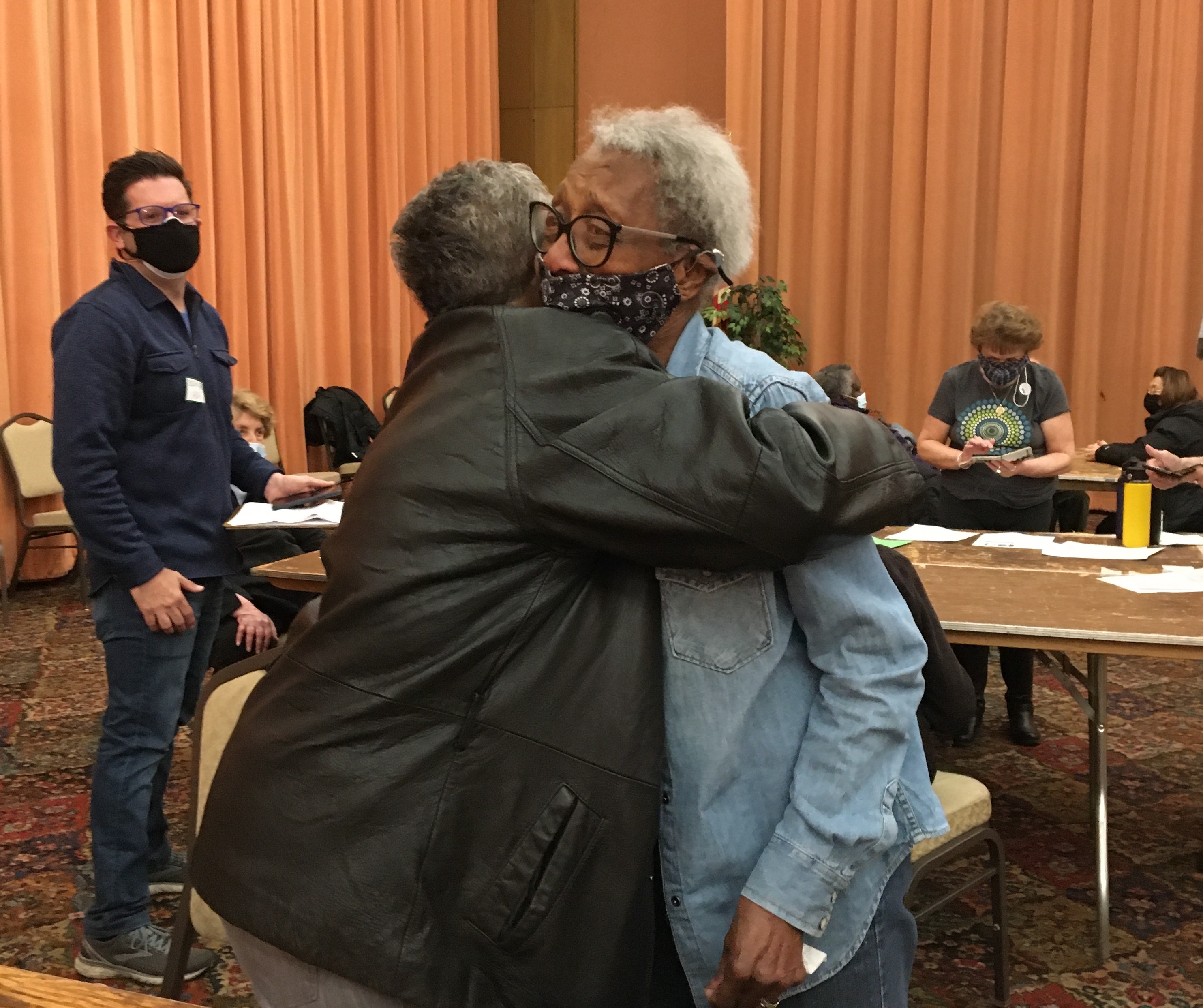Last month, the Jewish Federation of Greater Philadelphia organized a COVID vaccine clinic in partnership with Old York Road Kehillah, Keneseth Israel Synagogue and Wellness Pharmacy Services. We vaccinated 1,432 people, the vast majority of whom were seniors.
Emma, a staff member who volunteered at the clinic, wrote the following about her experience behind-the-scenes.
***
I volunteered at our vaccine clinic because I knew it had been difficult for many people to get a vaccine. I had been able to find appointments for my eligible family members but it wasn't easy. Our goal was to reach seniors who didn't have an internet-savvy granddaughter to help them—those who had fallen through the cracks.
Instead of using a webform to book appointments, we opened up a "hotline" for people to call. We were cognizant that web-based signups are a barrier for many seniors—particularly low-income seniors, who are less likely to have home internet. We also had a Russian-speaking staffer, since our Jewish communities contain many immigrants from Eastern Europe.
From the moment our hotline opened, the volume of calls was overwhelming. As soon as I hung up, another ring would come through. By the end of the day, my throat was hoarse from talking so much. But the relief people felt was palpable. One woman cried, saying she had been turned down over and over. A dialysis nurse called from a local hospital, saying she had dozens of highly vulnerable patients who hadn't been able to get the vaccine.
The vaccine clinic took place that Friday at Keneseth Israel Synagogue in Elkins Park. I checked people in while other volunteers managed the lines or observed patients for allergic reactions. Once again, the happiness and relief was overwhelming. People smiled and thanked us profusely. One woman shared that her husband had passed away from COVID only a few weeks ago.
The clinic was also a great community connector. Not all of the patients were Jewish and some remarked that it was their first time in a synagogue, or that they frequently drove past Keneseth Israel but had never been inside.
And while it was powerful to be a part of this experience, it was also sobering to see firsthand how many vulnerable adults were struggling to get a vaccine. Many of the seniors who came to the clinic were clearly vulnerable and experiencing health challenges. They should have been among the first to get vaccines, but they weren't.
This is unfortunately true across the country. A "vaccine divide" has emerged between older adults who have access to resources (for instance, a support person to drive them to their appointment, or home internet access) and those who don't. Whether because they are isolated, low income, or both, too many seniors have fallen through the cracks.
When my own mother needed a vaccine, I was able to go online for her and find an appointment. But many of our seniors don't have that support structure, so it's our job at the Jewish Federation to provide it. Whether it's a vaccine appointment, groceries, or help with household repairs, the Jewish community must look after our elders the same way we would want our own parents to be looked after.
***
We can't do this work without your help. Give today and make programs like this possible.



